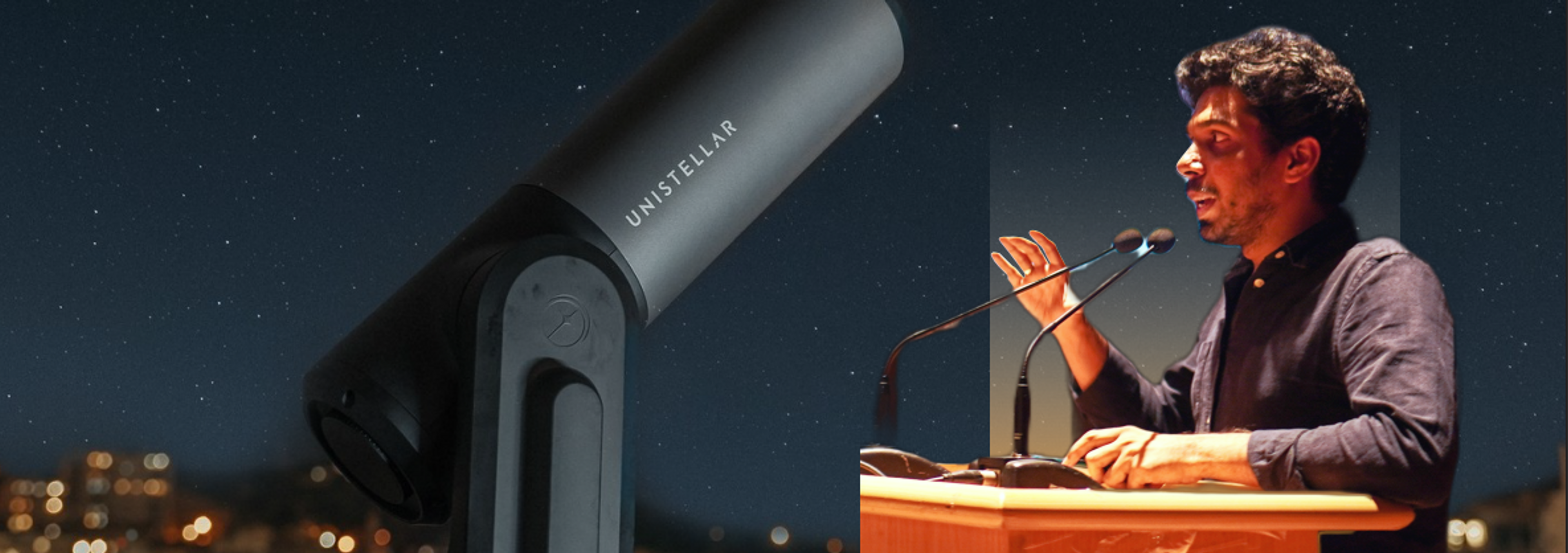29 Mar, 2023
views
DURBIN: Dur Bissher Nagorik
by

Soha Rashid
~3 min read
Share this blog

The Durbin project, a joint collaboration with the University of Toronto, saw two Unistellar eVscope eQuinox Telescopes for deep sky imaging brought to IUB. The project is inspired by Dr. Lamia Maula, who is a postdoctoral research fellow at Dunlap Institute of Astronomy and Astrophysics, University of Toronto, a result of DUNLAP Institute's grant for global outreach through her Doctorate Program.
Larger telescopes allow us to detect supernova explosions but cannot make follow up observations for hours on end. Smaller more portable telescopes can be distributed to thousands of people as part of a “Citizen science” project with the collected data being analyzed by scientists allowing them to track astronomical bodies including supernova explosions from different locations on Earth.
“The eQuinox telescopes stand apart due to a combination of the mirror, sensor, and internal microcomputer, which processes the collected photos even in places with light pollution, distinguishing between skylight and light pollution. It is incredibly portable, weighing only 9kg when the tripod is added. Most galaxies must be observed from remote locations, but many within our galaxies are observable using this telescope.” - shared Dr. Khan Asad.
“We are part of something really big, not just our Earth but our entire galaxy,” he said.
This astronomy project provides a unique opportunity for students to gain valuable skills and experiences by traveling to remote areas and taking breathtaking photos of the night sky. Aspiring astronomers can gain a head start towards success among the stars, and 16 national volunteers will work together to plan outreach activities and capture stunning photos for sharing through various media channels. Additionally, the project aims to empower students through early exposure to research.
“National volunteers may be contacted and there can be regional volunteers to organize events all over Bangladesh or partake in the Citizen Science projects.”- Said Dr Khan Asad.
On March 9th, 2023, the Dubrin project was inaugurated with a screening of the telescope screen at the IUB auditorium. The astronomy nights shall continue and observations made by volunteers in various locations, such as the hill tracts of Chittagong, can be shared through screens online during night-long observation sessions.
However, to ensure the success of this endeavor, numerous precautions must be taken. “Secure locations must be identified for overnight stays during photo-taking, as continuous observation over a prolonged period is necessary, especially for females”, he said.
Apart from that to assess the success of the project, several factors must be considered, including the efficacy of outreach events and the outcome of the citizen science project. Another potential criterion is the identification of exoplanets near stars. Although this telescope is not designed for discovering new planets, it can be utilized to observe known exoplanets during their transit in front of stars. By capturing precise images of this phenomenon, the telescope's efficiency can be evaluated, as well as the suitability of the atmosphere in Bangladesh for astronomy and the optimal months for observations. After the project's completion, scientific data can be analyzed to comprehensively evaluate the project's outcomes.
All that remains to be stated following the conclusion of this conversation with Dr. Khan is that we wish this endeavor nothing less than tremendous success!
